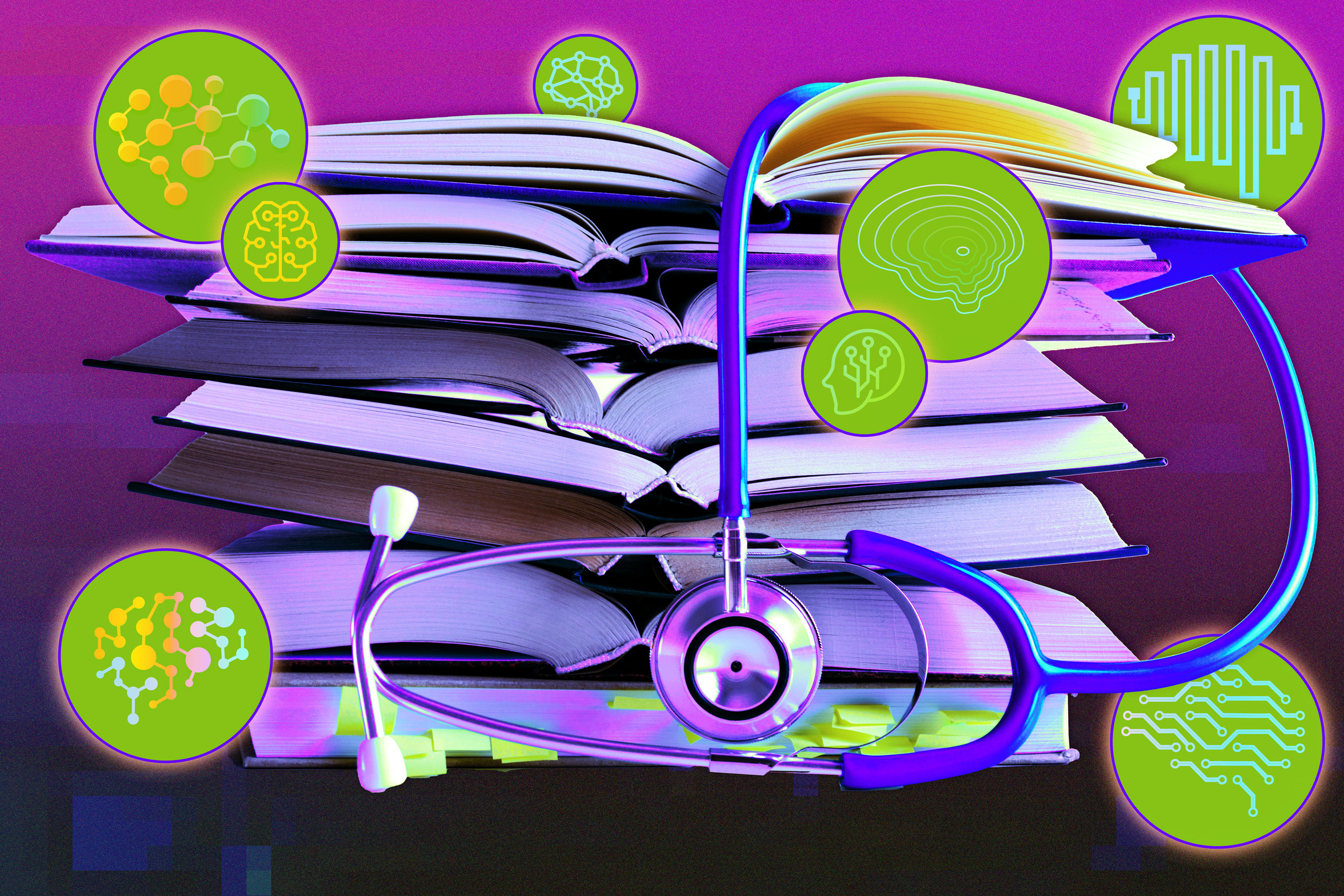
Introduced in November 2022, ChatGPT is a chatbot that may now not best have interaction in human-like dialog, but in addition supply correct solutions to questions in quite a lot of wisdom domain names. The chatbot, created by way of the company OpenAI, is in line with a circle of relatives of âmassive language fashionsâ â algorithms that may acknowledge, are expecting, and generate textual content in line with patterns they determine in datasets containing loads of hundreds of thousands of phrases.
In a find out about showing in PLOS Virtual Well being this week, researchers file that ChatGPT carried out at or close to the passing threshold of the U.S. Clinical Licensing Examination (USMLE) â a complete, three-part examination that medical doctors will have to cross prior to training medication in the US. In an article accompanying the paper, Leo Anthony Celi, a fundamental analysis scientist at MITâs Institute for Clinical Engineering and Science, a training doctor at Beth Israel Deaconess Clinical Middle, and an affiliate professor at Harvard Clinical Faculty, and his co-authors argue that ChatGPTâs luck in this examination must be a serious warning call for the clinical neighborhood.
Q: What do you assume the luck of ChatGPT at the USMLE unearths in regards to the nature of the clinical training and analysis of scholars?Â
A: The framing of clinical wisdom as one thing that may be encapsulated into a couple of selection questions creates a cognitive framing of false simple task. Clinical wisdom is steadily taught as mounted style representations of well being and illness. Remedy results are introduced as strong through the years in spite of continuously converting apply patterns. Mechanistic fashions are handed on from lecturers to scholars with little emphasis on how robustly the ones fashions had been derived, the uncertainties that persist round them, and the way they will have to be recalibrated to mirror advances worthy of incorporation into apply.Â
ChatGPT handed an exam that rewards memorizing the parts of a machine reasonably than inspecting the way it works, the way it fails, the way it was once created, how it’s maintained. Its luck demonstrates probably the most shortcomings in how we educate and review clinical scholars. Vital considering calls for appreciation that floor truths in medication frequently shift, and extra importantly, an working out how and why they shift.
Q: What steps do you assume the clinical neighborhood must take to change how scholars are taught and evaluated? Â
A: Studying is ready leveraging the present frame of information, working out its gaps, and searching for to fill the ones gaps. It calls for being happy with and with the ability to probe the uncertainties. We fail as lecturers by way of now not educating scholars the best way to perceive the gaps within the present frame of information. We fail them after we hold forth simple task over interest, and hubris over humility. Â
Clinical training additionally calls for being acutely aware of the biases in the way in which clinical wisdom is created and validated. Those biases are highest addressed by way of optimizing the cognitive range throughout the neighborhood. Greater than ever, there’s a wish to encourage cross-disciplinary collaborative studying and problem-solving. Clinical scholars want knowledge science abilities that may permit each clinician to give a contribution to, frequently assess, and recalibrate clinical wisdom.
Q: Do you spot any upside to ChatGPTâs luck on this examination? Are there recommended ways in which ChatGPT and different sorts of AI can give a contribution to the apply of medication?Â
A: There is not any query that giant language fashions (LLMs) akin to ChatGPT are very tough equipment in sifting via content material past the features of mavens, and even teams of mavens, and extracting wisdom. Then again, we will be able to wish to cope with the issue of information bias prior to we will leverage LLMs and different synthetic intelligence applied sciences. The frame of information that LLMs educate on, each clinical and past, is ruled by way of content material and analysis from well-funded establishments in high-income nations. It isn’t consultant of lots of the international.
We’ve additionally realized that even mechanistic fashions of well being and illness is also biased. Those inputs are fed to encoders and transformers which might be oblivious to those biases. Floor truths in medication are ceaselessly transferring, and lately, there’s no technique to resolve when floor truths have drifted. LLMs don’t review the standard and the unfairness of the content material they’re being skilled on. Neither do they give you the degree of uncertainty round their output. However the very best must now not be the enemy of the great. There’s super alternative to fortify the way in which well being care suppliers lately make scientific choices, which we all know are tainted with subconscious bias. I haven’t any doubt AI will ship its promise as soon as now we have optimized the knowledge enter.